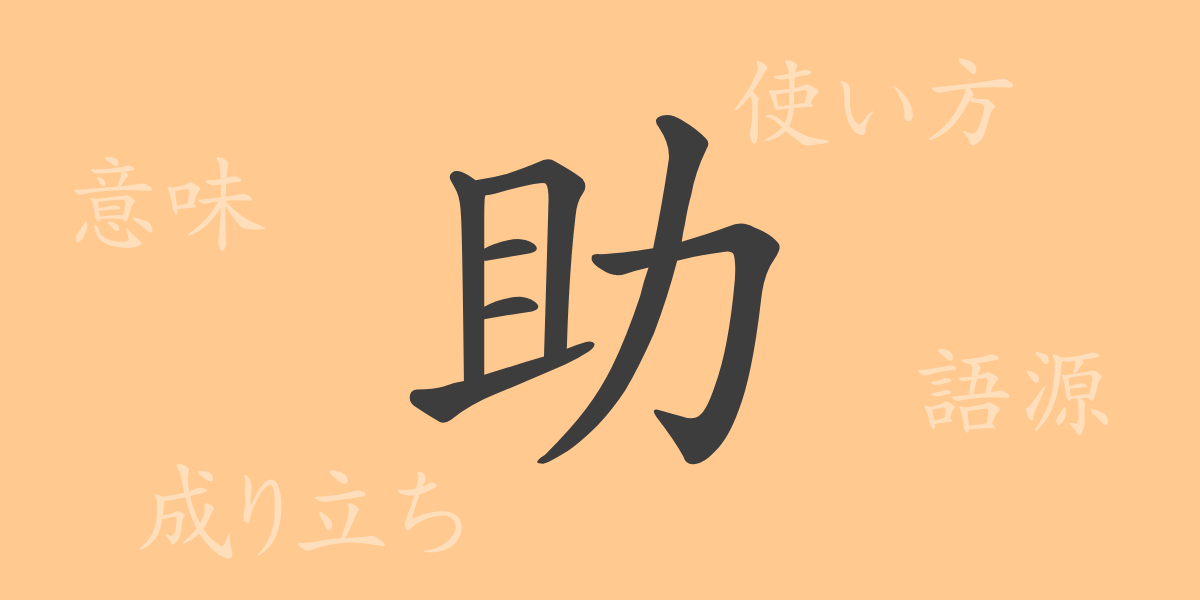The Kanji ‘助’ (じょ) is frequently used in everyday Japanese, yet its rich history and diverse applications are often overlooked. This article delves deep into the world of ‘助’, exploring its origins, meanings, and uses, along with common idioms and phrases that feature this Kanji, unveiling its full spectrum.
Origins of 助 (じょ)
The Kanji ‘助’ originated in ancient China, evolving from a pictograph. Initially depicting a combination of ‘力’ (power) and ‘且’ (moreover), which symbolizes stopping or piling up stones, it came to mean ‘to add strength to support something’. Over time, ‘助’ evolved to signify ‘to help’ or ‘to assist’.
Meaning and Usage of 助 (じょ)
‘助’ is used to mean ‘to help’, ‘to assist’, or ‘to save’. It appears in contexts involving aiding others or providing support. The Kanji also features in the word ‘補助’ (ほじょ), meaning ‘supplementary’ or ‘to complement’, highlighting its nuances of supporting or completing something. It’s indispensable in expressing relationships or actions that involve support.
Readings, Stroke Count, and Radical of 助 (じょ)
‘助’ is recognized as a fundamental Kanji in Japanese, with the following characteristics:
- Readings: On’yomi ‘ジョ’, Kun’yomi ‘たす・ける’, ‘たす・かる’, ‘す・ける’
- Stroke Count: The Kanji ‘助’ consists of 7 strokes.
- Radical: The radical for ‘助’ is ‘力 (りきづくり)’.
Phrases and Proverbs Using 助 (じょ) and Their Meanings
‘助’ is found in many idioms, phrases, and proverbs, each enriching the Japanese language. Examples include:
- 助言 (じょげん) – Meaning ‘to give advice’.
- 助成 (じょせい) – Means ‘to support’ or ‘to sponsor’.
- 助け舟を出す – A phrase meaning ‘to lend a helping hand’.
- 助けてもらって木に登る – A proverb meaning ‘to achieve a goal with the help of others’.
Conclusion on 助 (じょ)
The Kanji ‘助’ has expressed the fundamental concepts of support and assistance throughout its history. In Japanese, ‘助’ symbolizes the act of people helping each other, and through various phrases and proverbs, its spirit continues to thrive. This article aims to deepen understanding of ‘助’, enhancing appreciation and mastery of nuanced Japanese expressions.

























